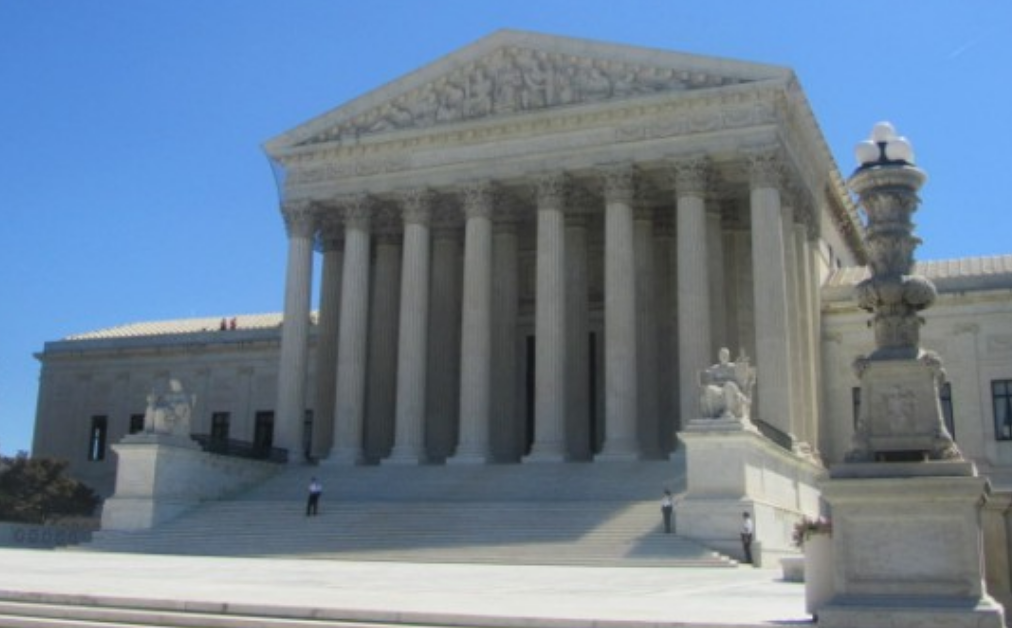
- Details
- By Levi Rickert
The U.S. Supreme Court announced on Friday it will review only one aspect of its 2020 McGirt v. Oklahoma decision that declared a swath of eastern Oklahoma is on Indian reservation land. The highest court in the country rejected the state of Oklahoma’s request to consider overturning the entire decision.
The landmark 2020 decision ruled that Native Americans who commit crimes on Indian reservation lands cannot be prosecuted by state or local law enforcement but instead must face charges in tribal or federal courts.
Want more Native News? Get the free daily newsletter today.
The question the Supreme Court will review this term is whether McGirt applies to non-Natives who commit crimes against Native Americans on reservations.
The review is on the case of Victor Manuel Castro-Huerta, a non-Native man, who was convicted of neglecting his five-year-old stepdaughter, who is a tribal citizen of the Eastern Band of Cherokee Indians. The stepdaughter has cerebral palsy and is legally blind. Under Castro-Huerta’s care, she was found dehydrated, covered in lice and excrement, and weighing only 19 pounds.
The Oklahoma Court of Criminal Appeals vacated his conviction because his crime was committed on Indian land.
Friday’s announcement was a blow to the state of Oklahoma that has filed more than 30 separate petitions requesting the Supreme Court to overrule McGirt. the state of Oklahoma has told the Supreme Court its 2020 decision has been “calamitous and are worsening by the day.”
Beyond justice, the state contends the McGirt decision threatens “hundreds of millions of dollars in state tax revenue.”
The Supreme Court’s rejection to review the 2020 McGirt decision was met with gratitude by the Cherokee Nation.
“The Cherokee Nation celebrates the Supreme Court’s rejection of a blatantly political request to overturn its McGirt decision. With this rejection of the state’s request in this case, the court affirms its decision in McGirt. I am proud of the Cherokee Nation’s success over the past year and a half expanding our justice system in record speed and fighting for public safety, but it would have been more effective had the governor chosen to come to the table from the start,” Cherokee Nation Principal Chief Chuck Hoskin Jr. said in a statement.
“Now that Governor Stitt’s fight against tribal sovereignty has once again come up short, we hope he will consider joining tribes, rather than undermining our efforts, so we can focus on what is best for our tribal nations and all Oklahomans,” Hoskin continued.
“The court will separately consider an Indian law issue unrelated to reservation status: whether a state maintains authority to prosecute a non-Indian who commits a crime against an Indian in Indian country. Regardless of the outcome, the Nation will continue to work with state, local and federal partners to ensure that the public is protected on the Cherokee Nation’s reservation,” Cherokee Nation Attorney General Sara Hill said.
The Supreme Court on Friday set the case for argument in its April 2022 argument session, with a decision to follow by summer.
More Stories Like This
Native News Weekly (August 25, 2024): D.C. BriefsNCAI Releases Sttatement on the Passing of Rev. Jesse Jackson
Colusa Indian Energy Participates in Port of Quincy Town Hall on Columbia Basin Power Project
Q&A: Jingle Dress Dancer Answered Call to Ceremony in Face of ICE Violence
Haaland Gets First Hand Look at Efforts to Address Homelessness in Albuquerque
Help us defend tribal sovereignty.
At Native News Online, our mission is rooted in telling the stories that strengthen sovereignty and uplift Indigenous voices — not just at year’s end, but every single day.
Because of your generosity last year, we were able to keep our reporters on the ground in tribal communities, at national gatherings and in the halls of Congress — covering the issues that matter most to Indian Country: sovereignty, culture, education, health and economic opportunity.
That support sustained us through a tough year in 2025. Now, as we look to the year ahead, we need your help right now to ensure warrior journalism remains strong — reporting that defends tribal sovereignty, amplifies Native truth, and holds power accountable.
 The stakes couldn't be higher. Your support keeps Native voices heard, Native stories told and Native sovereignty defended.
The stakes couldn't be higher. Your support keeps Native voices heard, Native stories told and Native sovereignty defended.
Stand with Warrior Journalism today.
Levi Rickert (Potawatomi), Editor & Publisher

